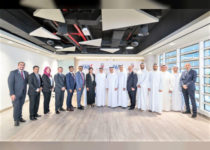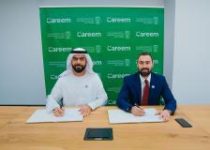H.E. Eng. Suhail Mohamed Faraj Al Mazrouei, the UAE Minister of Energy & Industry, has emphasised the UAE’s unwavering commitment to global prosperity and setting an example to Least Developed Countries in remarks made at the 8th Ministerial Conference of the Least Developed Countries (LDCs) organised by the United Nations Industrial Development Organization (UNIDO). The event, held on 2nd November 2019 at Abu Dhabi’s Emirates Palace Hotel, will be followed by the five-day UNIDO General Conference (GC), which starts on 3rd November 2019.
The Minister noted that the advancement of humanity and achievement of peace and prosperity are key pillars of the UAE’s foreign aid policy, as shaped by the vision of the nation’s founding father, the late Sheikh Zayed bin Sultan Al Nahyan. The UAE has adopted the idea of sustainable development and improving the welfare of all mankind.
H.E. Suhail Mohamed Al Mazrouei, Minister of Energy and Industry, United Arab Emirates said: “I believe that there are many lessons to be learnt from the UAE’s approach to developing a diversified and sustainable knowledge-based economy in which the industrial sector has played a key role. The UAE has adopted a comprehensive and integrated approach to developing the industrial sector which has allowed us to establish a sophisticated industrial base in unprecedented time and some of our national industrial companies have become major contributors to global value chains in a variety of advanced industrial sectors, such as aviation, aluminium and other leading industries.”
In 2017, the UAE was the world’s largest donor of development assistance in proportion to Gross National Income (GNI) for the fifth year running by the Development Assistance Committee of the Organisation of Economic Cooperation and Development. The Emirates regularly exceed the UN target of 0.7 percent official development assistance in proportion to GNI.
The UAE’s commitment to global growth is evidenced by foreign aid contributions channeled towards sustainable development and improving human welfare. These principles are codified in the country’s five-year strategy for foreign aid, announced by the UAE’s Ministry of Foreign Affairs and International Co-operation for 2017-2021. The strategy sees the UAE direct aid towards three key goals: women’s empowerment and protection, transport and urban infrastructure, and technical co-operation.
The Minister also held up the UAE’s SME-powered industrialisation and economic diversification as a model for developing countries to learn from. H.E. Al Mazrouei said: “The UAE has focused on fostering an entrepreneurial ecosystem and providing strong support for small and medium enterprises (SMEs) to enter the industrial sector and contribute to global value chains. In fact, embracing innovation and advanced technology is at the heart of the UAE’s efforts to develop a sustainable economy.”
H.E. Al Mazrouei also cited the importance of public-private sector partnerships, commending the UAE government’s close partnership with private entities as a driver of growth and calling for UNIDO member countries to harness the expertise, competencies and capital offered by the private sector.
H.E. Al Mazrouei added: “One of the main lessons we have learned is the need to form strong partnerships with the private sector through Public Private Partnerships (PPP); this policy has been a fundamental pillar in the UAE achieving sustainable industrial development.”
The UAE’s commitment to sustainable industrialisation has seen it partner with UNIDO to launch the Global Manufacturing and Industrialisation Summit (GMIS) in 2015. The joint initiative became the world’s first platform to unite global industry leaders, academia, civil society and investors in a common platform designed to shape the future of manufacturing in preparation for the Fourth Industrial Revolution.
The General Conference, UNIDO’s supreme policymaking organ, convenes every two years to determine the guidelines and policies of the Organization and approve its budget and working programmes. It is being preceded by the 8th Ministerial Conference of the Least Developed Countries (LDCs), which will develop new strategies for LDC industrialisation beyond 2020, helping member nations meet their national development goals.







